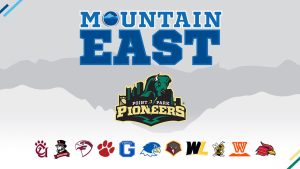If out-of-state visitors have been hearing a “foreign” language while talking to the locals here, it is not their imagination. It is called “Pittsburghese.”As a student on Point Park University’s campus, there are many things to become accustomed to while exploring the heart of the city and its culture.One of the first lessons is learning Pittsburgh’s unique language. A study conducted by the University of Pittsburgh answers many questions about “Pittsburghese.”As an English professor at Carnegie Mellon University, Barbara Johnstone decided to be part of conducting the research.”It’s in my field. I had been studying connections between language, identity, and place,” Johnstone said in a phone interview on Monday. “Language plays an important role in how people imagine themselves and the city.”She thought it would be interesting to study why people had become attached to the dialect in different ways.Johnstone, originally from State College, Pa., finds that after living in Pittsburgh, she has not started speaking “Pittsburghese”, but she has actually “readopted” certain phrases from her childhood. These include: pop instead of soda, and needs done instead of needs to be done.After conducting the study, Johnstone was shocked to find that the word “Pittsburghese” was actually not used until the 1960s.”People until the 1960s were not aware of Pittsburgh speech,” Johnstone explained.Most using this language are older residents who have lived in Pittsburgh for a long time.Sarah Brickett, a sophomore psychology major, finds that her older family members are more likely to use Pittsburgh words and accents.”I more so hear it from older people in my family,” Brickett said in an interview on the fourth floor of Lawrence Hall on Thursday. “My great-aunt uses it all the time. She answers the phone with ‘yello.'”A section within the study discusses whether people are embarrassed or proud of their Pittsburgh speech. No clear-cut decision is made because there are valid reasons for each perspective.Some find themselves proud of the way they speak because it shows where they are from. They use their speech to identify themselves with their city.Others find speaking “Pittsburghese” makes them feel self-conscious. They want to speak with correct grammar and that is not always true of Pittsburgh speech.”We try to stay away from it,” said Rudy Hazen, a freshman dance major, in an interview in the Lawrence Hall lobby on Thursday. She grew up in the local area. “I don’t want people to be like oh, ‘Pittsburghese.'”She and her family agree with those who find the local language embarrassing.One word from the “Pittsburghese” language does manage to sneak into Rudy’s vocabulary is: ‘nebby.’ Hazen defined the word as, “being in someone’s business.”A short walk to any location around campus will give way to the first lesson to be learned in “Pittsburghese.” Many signs use the word “yinz” to rally residents.This word is simply a way to say “you.”The webpage for the study contains a dictionary of words spoken in Pittsburgh, but a phrase that many assume should be in there is left out, ‘Jeet jet,’ which translates to “did you eat yet.” The phrase is not considered to be part of “Pittsburghese.”According to the study, the phrase “isn’t unique to Pittsburgh speech.” Researchers found that a person from any location would use this saying if they were asking the question quickly.Some common words that are in the dictionary include “redd up” and “gumband.” The previous signifies to clean something up and the latter is a synonym for the word rubber band.Also, in Pittsburgh, the word jumbo isn’t only an adjective; it is “Pittsburghese” for bologna.”When I visit family out of state, they can tell,” junior electrical engineering and technical theater major Shayne Kastroll said in an interview in the fourth floor of Lawrence Hall on Friday, in reference to his Pittsburgh accent.The study demonstrates that certain vowel sounds will denote the accent.
Breaking News








